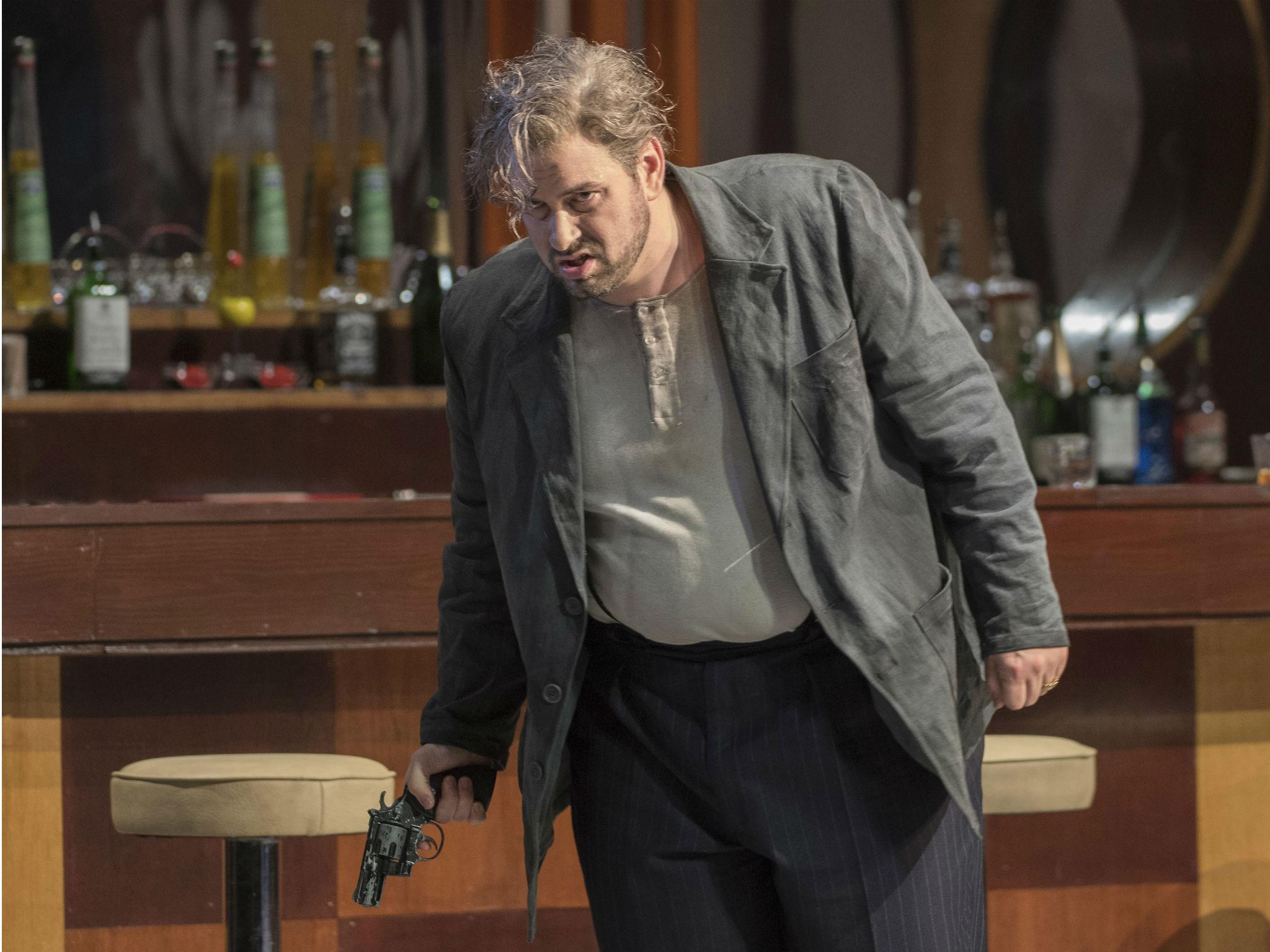Rigoletto, Coliseum, London, review: The hairs rise as they should on the nape of the neck
ENO's revival of Jonathan Miller's much-loved version of Verdi’s 'Rigoletto', moves the action to New York's Little Italy in the 1950s

Your support helps us to tell the story
From reproductive rights to climate change to Big Tech, The Independent is on the ground when the story is developing. Whether it's investigating the financials of Elon Musk's pro-Trump PAC or producing our latest documentary, 'The A Word', which shines a light on the American women fighting for reproductive rights, we know how important it is to parse out the facts from the messaging.
At such a critical moment in US history, we need reporters on the ground. Your donation allows us to keep sending journalists to speak to both sides of the story.
The Independent is trusted by Americans across the entire political spectrum. And unlike many other quality news outlets, we choose not to lock Americans out of our reporting and analysis with paywalls. We believe quality journalism should be available to everyone, paid for by those who can afford it.
Your support makes all the difference.When ENO junked Jonathan Miller’s much-loved production of Rigoletto in favour of Christopher Alden’s take in 2014, we critics predicted that they would soon learn the error of their ways. Well, it’s taken three years, but the Miller version is now back, to general rejoicing. Alden’s modishly sociological reading offered some interesting insights, but it pulled the plot about unhelpfully: his aversion to cosy old naturalism fatally spiked what should be the story’s most heart-rending moments.
Miller’s version may have premiered 35 years ago but it has evergreen force, remaining true to Victor Hugo’s conviction – underscored by Verdi – that the real subject of the drama was the curse placed upon the hunchbacked jester by the father whose sexual humiliation he had publicly mocked. And as a piece of stage-design the work of Patrick Robertson and Rosemary Vercoe remains flawless: the club and tenement scenes evoke New York’s Little Italy of the Fifties so convincingly that we feel we are actually there, while the Hopper-pastiche night-bar is as darkly resonant as the painting on which it is modelled.
The first thing to say about Elaine Tyler-Hall’s revival is that it’s well sung, with fine support from Richard Armstrong in the pit. Nicholas Pallesen’s Rigoletto has heft and beauty of tone, while the unforced grace with which Sydney Mancasola delivers Gilda’s arias is a delight. Joshua Guerrero’s Duke has a floating sweetness, and Barnaby Rea’s performance as Sparafucile is pleasingly musical.
Dramatically, however, we are short-changed. This soft-looking Duke convinces neither as Mafia boss nor as Lothario, and this Sparafucile lacks the requisite basso-profundo ballast; more seriously, this jester only half-convinces when he reveals his torments – Pallesen’s singing feels at times like a concert recital (and neither he nor Mancasola deliver comprehensible words). But as the evening progresses, and the Lear-Cordelia tragedy unfolds, the hairs rise as they should on the nape of the neck.
Join our commenting forum
Join thought-provoking conversations, follow other Independent readers and see their replies
Comments